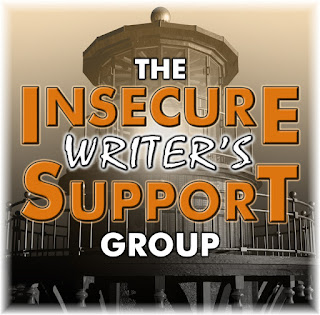It’s the first Wednesday of the month and so it’s time for another Insecure Writer's Support Group (IWSG) post! In an IWSG post, we writers bring our writing challenges and problems out into the open to share with each other and try to offer solutions. What does the Fourth of July and self-publishing have to do with each other? Freedom. Read on to see how!
Changes In the Book Industry
I’d like to start off answering the IWSG question of the month which is: There have been many industry changes in the last decade, so what are some changes you would like to see happen in the next decade? One of the many changes in the last decade have been the publishing of more minority fiction, especially in the speculative genres. This has made me very proud since I come from a Hispanic background although I’m nowhere near exemplary of this change like award-winning minority authors such as N.K. Jemison and Wesley Chu. But the success of writers such as they shows that it is not impossible for a minority to publish at the award-winning level.
Another change in the last decade has been more indie and self-published authors getting recognition. Like the Declaration of Independence has been the gateway to freedom of the U.S. colonies from imperial England, the internet has been the gateway to freedom from traditional, big business publishers like Penguin. This has particularly been the case for unknown and aspiring writers who can now publish their work on their own without having to spend big loads of money many of them don’t have or to connect with important people in the industry.
However, while self-publishing has brought more freedom for aspiring authors to make known their work to the world, it’s also brought freedom to publish more junk, junk that avid readers too often have to weed through to find work worth reading. So, I would like to see more critical praise of self-published authors who come out with high quality work. The more critical praise they get, the less that readers will have to grope their way through the literary wasteland of self-published books.
Status of My Writing Projects
I talked about my novella last IWSG. I said that I was using a story map to keep better track of the scenes and elements in my novella because it’s a size of fiction that I don’t often work with. Before that, I had made a new deadline schedule. The map helped me to see what can be taken out of the story. The deadline schedule? So far, I’ve only met one deadline for a specific number of pages. The other deadlines I’ve been missing and have had to constantly reset. I’m to the point of just throwing the schedule aside and saying that the deadline is whenever the story gets done. Maybe I’ll just have to move the final due date (for the whole story) to later. Currently the final due date (for finishing revisions) is January 2021.
What changes would you like to see in the book/literary industry? What are you working on?
Today’s IWSG is brought to you by these super co-hosts: Jenni Enzor, Beth Camp, Liesbet @ Roaming About, Tyrean Martinson, and Sandra Cox! IWSG was founded by awesome author Alex Cavanaugh, writer of the Cassa Series of novels!
Everyone have a Happy and Safe Fourth of July!
 |
| Credit: Wikimedia Commons |
Until next time . . .

More reviewers for self-published and small press books would be nice.
ReplyDeleteWriting is a challenge for many right now, so maybe removing the pressure of a schedule would help you.
I can try that. Or just loosen up on it.
DeleteI agree, it's hard for the cream to rise in the self-publishing arena. I attribute this partly to a skewed playing field by way of access to affordable advertising and review platforms. Thanks for sharing! Have a great weekend!
ReplyDeleteI sometimes consider affordable advertising though I prefer word-of-mouth. You have a great weekend too, Dixie!
DeleteIt's strange to me that I love watching anything that looks even remotely interesting on Netflix or Prime. I love stories and I love getting lost in them. But I have a really hard time picking up unknown books, and I rarely come across Indie books when I'm browsing. TV platforms are constantly throwing foreign and indie works my way. Perhaps if they did the same for books I would get to read more. I guess it is the difference in wasting an hour to see if a film was worth it, versus a few days to determine if the book was any good.
ReplyDeleteI can see how that's so, because most of us have to put more time into reading a book than we do watching a movie.
DeleteWhile deadlines work in certain cases (for me when I'm writing or editing for others), it's so much harder to stick to for oneself. In general, I didn't care too much about this with my travel memoir, but after almost five years of working on it whenever I wasn't roaming about (which is, generally, full-time), it's time to get it done. You might get to a point like this as well, or feel more happy and relieved just sticking to the word goal and leave the deadline vague. whatever works! :-)
ReplyDeleteI think I had gotten to that point! lol So that's why I set up the deadline schedule that I did because I had started the novella three or four years ago (although I had put the first draft aside for about a year). I was doing a combination of deadlines and page(s) per day. Maybe I'll just do pages/word-count per day instead and, as you said, keep the deadline vague. Something I'll have to consider. Thanks!
Delete